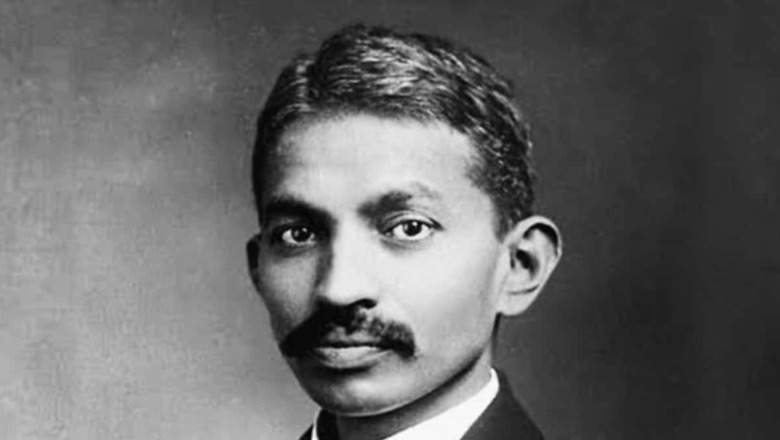
views
It has been reported that Mahatma Gandhi was an average student till matriculation, much like any other child. He had common childhood fears, such as being afraid of the dark, and believed in superstitions like snakes and ghosts.
In his book ‘Gandhi Kyon Nahi Marte!‘ published by Radhakrishna Prakashan, Chandrakant Wankhede shared some interesting stories related to Gandhi’s personal life.
Once, while Gandhi was in high school, an English officer came for an inspection and asked the students to solve a question. Gandhi was answering it incorrectly. When his teacher noticed this, he gestured Gandhi to copy from the script of the boy sitting in front of him.
At first, young Gandhi ignored his teacher’s gesture. The teacher, thinking Gandhi might not have understood, tried again, this time pinching Gandhi’s leg. Even when the teacher instructed him directly, Gandhi refused to copy.
Period of disappointment Following Gandhi’s Barristership
Born in 1869, Mohandas Karamchand Gandhi returned to India as a barrister at the age of 22. He applied to practice law in Mumbai. However he had to face a lot of struggle. After about two years, he went back to Rajkot. However, there as well, Gandhi did not emerge successful.
Wankhede wrote in his book that when Gandhi became tired of his failures and frustrated, he opted for low-skilled works like writing documents though he was not fond of it. Being disappointed, he applied for the post of a teacher in a school. However, his application was not accepted.
During this period of disappointment, a letter from South Africa in 1893 came as a ray of hope. The letter was from ‘Dada Abdullah and Company’, a merchant from the Memon community. In the letter, Gandhi was asked if he was ready to come over to South Africa.
A case of Dada Abdullah and Company was pending in court. The lawyer who was an Englishman did not know any other language other than English. Dada Abdullah and Company also did not understand his language. The company expected Gandhi to do the work of translation and interpretation, rather than advocacy. Though the job was not as per his expectation, Gandhi agreed immediately.
Why Gandhi Gave Up Salt for Life
Once, Mahatma Gandhi’s wife, Kasturba Gandhi, fell ill. The doctor advised her to stop eating salt for the sake of her recovery. However, Kasturba refused to follow the doctor’s advice, insisting that food without salt was pointless. Despite the doctor’s repeated insistence, she remained adamant. Even Gandhi tried to convince her, but Kasturba became upset and said, “It is very easy to say such things to others…”
At that moment, Gandhi decided to stop adding salt to his food. Later, Kasturba blamed herself for this and apologized, trying to persuade him to reconsider. However, Gandhi remained firm in his decision.




















Comments
0 comment